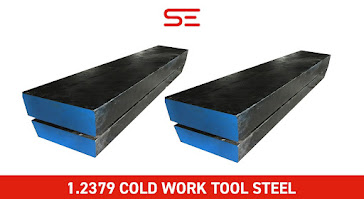Why Is 1.2083 Steel Preferred For Tool And Mold Making?
1.2083 Steel, also known as AISI 420, is a popular choice for tool and mold making due to several key characteristics:
Corrosion Resistance: 1.2083 Steel contains chromium, which
enhances its resistance to corrosion, making it suitable for applications where
exposure to moisture and corrosive elements is common. This resistance helps to
maintain the integrity of the tool or mold over time, reducing maintenance and
replacement costs.
Wear Resistance: The composition of 1.2083 Steel, which often includes elements like carbon and
chromium, contributes to its excellent wear resistance. This property is
essential in tool and mold making,
where the equipment is subjected to abrasive materials and repetitive use. High
wear resistance ensures prolonged tool life and consistent performance.
Hardness: 1.2083 steel can be hardened through heat treatment
processes such as quenching and tempering, resulting in high hardness levels.
This hardness makes the steel suitable for forming molds and tooling components
that require resistance to deformation and wear under high-pressure conditions.
Polishability: The fine grain structure of 1.2083 steel allows for
excellent polishability, enabling the production of high-quality mold surfaces
with minimal imperfections. This characteristic is crucial in mold making,
where smooth surfaces are necessary to produce accurate and aesthetically
pleasing finished products.
Machinability: 1.2083 Steel exhibits good machinability, allowing
for ease of fabrication and machining processes such as milling, drilling, and
grinding. This property enhances the efficiency of tool and mold manufacturing
processes, reducing production time and costs.
Dimensional Stability: The uniform microstructure of 1.2083 Steel
contributes to its dimensional stability, ensuring consistent performance and
precise tooling and molding operations over time. Dimensional stability is
critical in maintaining the accuracy and quality of manufactured components.
Overall, the combination of
corrosion resistance, wear resistance, hardness, polishability, machinability,
and dimensional stability makes 1.2083 steel a preferred choice for tool and
mold making applications in various industries, including automotive,
aerospace, consumer goods, and electronics manufacturing.
At Sandeep
Enterprises, we stand as a cornerstone in the steel industry, offering a
comprehensive portfolio that exemplifies excellence. As your reliable partner,
we integrate precision engineering, innovation, and a steadfast commitment to
quality into every aspect of the steel production process.




Comments
Post a Comment